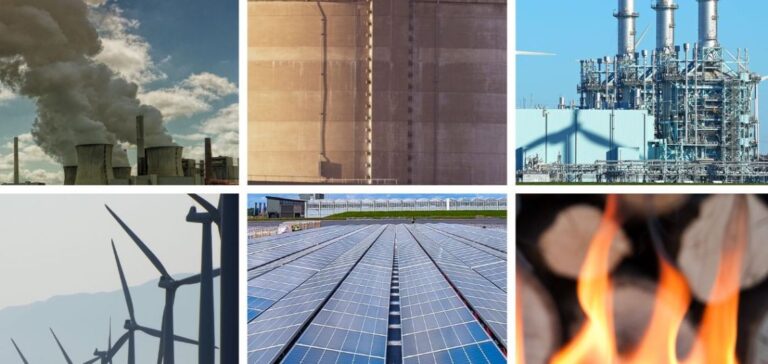The proportion of electricity generated from fossil fuels fell to 33% in the European Union in the first half of the year, its lowest level ever, according to a report published on Wednesday by climate and energy think-tank Ember.
EU power generation: Fossil fuels in historic decline to 33% of electricity mix
Between January and June, “fossil fuels generated 410 TWh in the EU, the lowest ever share of the electricity mix, at 33%”, Ember states in its report, compared with almost 36% for renewables as a whole, including some 27% for solar and wind power, according to data provided by Ember to AFP.
“The decline of fossil fuels is a sign of the times. Coal and gas are too expensive, too risky, and the EU is phasing them out,” points out Matt Ewen, analyst for Ember.
The main reason: demand for electricity on the continent has fallen significantly, both from households and factories, and it is primarily coal- and gas-fired power plants that have slowed down, reducing their share of total production. Fossil-fired electricity generation in coal- and gas-fired power plants fell by 17% between January and June compared with the first half of 2022, the report states. Five EU countries even saw a drop of over 30% (Portugal, Austria, Bulgaria, Estonia, Finland).
Energy transition in Europe: Historic drop in fossil-fired power generation and call for expansion of renewable energies
Coal-fired power generation fell by 23%, representing less than 10% of the European electricity mix for the first time in May. From gas, it fell by 13%. The report’s authors warn of the need to “massively” increase the deployment of renewable energies, particularly solar and wind power, “to support a resilient economy across Europe” and sustainably offset the decline in fossil-fired power generation.
In terms of volume, renewable generation is currently insufficient to offset the decline in fossil-fired electricity, which totaled 86 TWh, while renewables grew by just under 40 TWh. Solar power grew by 13% (+13 TWh) during the half-year compared with the first six months of 2022, and wind power by 4.8% (+10 TWh). Hydropower grew by 11% (+15 TWh).
The report also points out that nuclear power production is set to recover, after being at half-mast at the start of 2023 due to the heavy unavailability of France’s nuclear fleet, the largest in Europe.






















